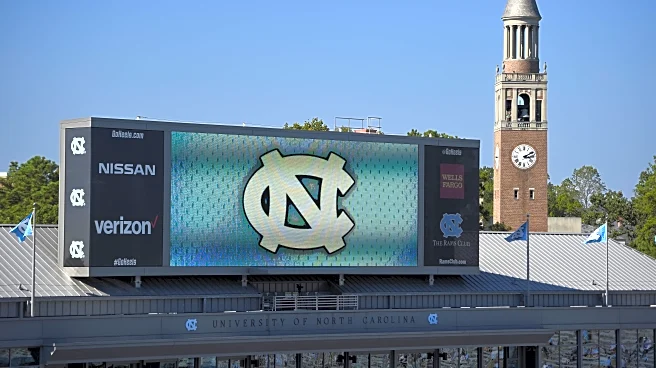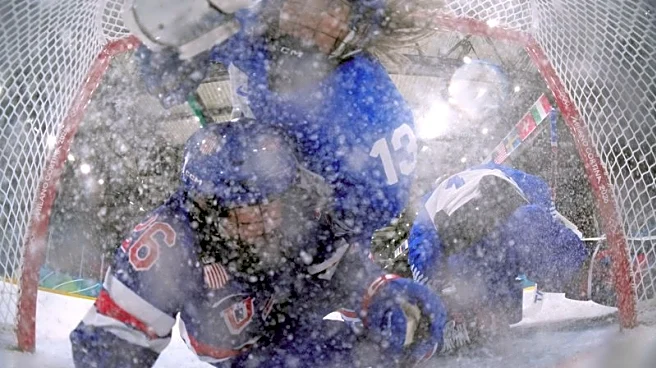Bit of background: I used to work with technology and media companies at a corporate level. One thing stood out in all those interactions between engineering, accounting, news rooms, product development,
tech support, sales, and all the other entities that had to work together for the product in the field to be successful:
Effective leaders were always the best communicators within their area of specialty, not the most proficient technicians.
The best at the Xs and Os were valuable and necessary parts of their departments. However, that didn’t make them effective leaders. The best engineering leaders weren’t the best engineer. The best accounting leaders weren’t the best accountant. Cold analysis was a necessary skill for great GMs, but absent people skills, those GMs never lasted. The most effective leadership came from those who possessed a deep understanding of the technical side of their field as well as the people who worked for them plus the needs their work product served. Long-term success necessitated acumen for all three elements in order to balance them appropriately.
Yeah, that sounds like a lot of consultant speak. Simplified: College football has a familiar saying: “It’s the Jimmies and Joes, not the Xs and Os.” On one level, that clearly speaks to the need for better players than the opponent. However, it speaks to another truth: the game has always been and remains a game played by dudes with one foot in the adult world but another still firmly planted in their teenage one. Emotionally, college ball remains much closer to high school than pro, despite the money, stadium expansions, and TV production values (ACC Network excepted). It’s a people business, not a bloodless professional venture. Recent changes to the game make that even more true today, as counterintuitive as that may seem.
People with the skills to connect with and get the most out of Jimmy and Joe have always had more success in this game than the ones who only see it as a chess board and the people in it as chess pieces. An Xs and Os savant can be hugely valuable as an analyst or coordinator. Every organization could use a good genius. Without the accompanying people skills, however, that genius will fail miserably as an organizational leader.
It hasn’t always been this way.
Football’s rhetorical roots lie in combat. The game has always been metaphorical war. Offenses throw bombs. Defenses blitz. Game observers wrap players in the linguistic garb of a warrior. Coaches command, ordering their soldiers into the breach. Some schools schedule fly-overs by combat aircraft just before kick-off. That imagery still infuses the sport’s ethos and cultural relevancy.
Way back when, that combat metaphor dominated the coach-player relationship. Players would play injured for their general, and their general accepted their sacrifice in the name of winning the battle. The coach was always right; questioning the commander was mutiny, an unforgivable transgression of team cohesion and unity. That ethos worked its way all the way down to middle school ball and beyond. I remember a woozy 10-year old teammate stumbling back into a Pop Warner game to play QB, what we would today instantly recognize as a concussion. His proud parents afterwards praised his toughness as a valuable life lesson.
Obviously, the game has changed. In the interests of self preservation, youth football has converted to flag football for the most part. High school football teams continue to dwindle in roster size to the point some of them will have to go to a 7 on 7 game in pads, a version of the game prevalent in Big Sky country for awhile now due to lack of players.
College football acclimates to these shifts bubbling up from the pool of players feeding its sport. On one level, NIL and transfer portal rules have made the game more transactional. It’s easy for fans, looking at these sea changes in money and unlimited player movement, to assume the game has flipped a switch into a purely transactional model. Initial evaluation of the Belichick hire made much of those changes and wondered if perhaps the game was moving towards a coach like Belichick. Maybe the time was right?
Turns out those changes made the people side of college ball even more important, not less.
In that sense, the perception that the college game has become purely mercenary and transactional badly misstates where the game’s been going for awhile now. Elite school recruiting pitches, both high school players and transfers, go well beyond the trophy room, a list of NFL millionaires, and a compensation figure. These schools emphasize personal development, the quality of relationships in the building, and the connection players will have with their coaches.
College coaches talk about having to recruit their own players every day. College football remains at heart a human endeavor full of developing adults still connected to their families and childhood support systems. Even Bear Bryant, a noted hard-ass from the era of coach as unquestioned authority, never missed a chance to talk up a player’s momma. The transactional pieces new to the college game haven’t displaced that essential character.
The pro game remains all business, but even the pro game now recognizes the business value of a positive work environment built on a foundation of mutual trust and respect. Admittedly, an asset-value mentality drives much of that change, as core players are expensive and difficult to replace. However, much of it is also draws from the realization that the most productive pro locker rooms emphasize communication and collaboration over compliance. Coaches and GMs today have to earn respect based on how they interact with players and staff on a daily basis, not the games they won five, ten or fifteen years ago.
Much of Belichick’s failure in New England his last 4 years can be attributed to his inability to recognize that fundamental shift.
Towards the end, Bill torched relationships with the players beneath him and the employer above him, despite the common ground of all their success. Much of Belichick’s failure here can be attributed to his inability to understand that relationships are even more important in the college game. Only 10 months into this experiment, he’s badly damaged his relationships with his players, his employer, and UNC fans. Forget this year’s wins and losses. That process, absent massive change, is doomed to failure.
Contrast that with the example of Nick Saban, who at Alabama had a sports psychologist on call at all times. No, scratch that. Saban had three. Those three resources were Saban’s sounding boards for understanding what made each player on his roster tick and, more importantly, how all those personalities coalesced into a locker room.
Ever the efficiency nut, Saban cut anything and everything out of his schedule that he felt to be a distraction to improving his own performance or that of his team. While Saban trusted his own experience and success, he clearly valued outside perspectives towards the goal of developing football players and winning football games. He understood what worked with today’s players in today’s game. He understood what his own weaknesses were.
I’m not suggesting Belichick’s incapable of adapting.
However, I do see clear parallels between the dysfunction of his last Patriot teams and this year’s UNC football team. Player frustration? Check. Tone-deaf press conferences? Check. Poor product on the field? Check. Defensive, even paranoid, dismissals of unflattering press reports? Check.
Bill’s Patriots went 4-13 in 2023 after an 8-9 campaign the year prior. That 12-22 finish cost him his job. I looked long and hard for any sort of reflection by Belichick on what precipitated such bad football, and frankly I can’t find anything. I do find press reports after 2022 somewhat similar to the ones currently circulating out of the Athletic Department, unattributed sources suggesting that Belichick acknowledged mistakes and promised corrections. The descent from 8-9 to 4-13 suggests the mistakes perceived and corrections attempted only made things worse, not better. In the aftermath of that, the Belichick vibe seems to be, “Bill didn’t fail the Patriots; the Patriots failed Bill.” I’m concerned I’m starting to see something similar play out here.
Over the next two months, Belichick will face some of the worst P4 teams in college football.
That starts with California Friday night. Add Wake Forest, Syracuse and Stanford. All four teams rank somewhere in the bottom half of FBS. State, Duke, and Virginia sit somewhere between 40 and 60 in national rankings. Increasingly, it appears UNC won’t face a top 40 team outside of TCU (currently 28th) all season. UNC’s strength of schedule, 88th at the moment, stands a great chance of ending the year as one of the easiest in college football.
If this program ends the year at 4-8 or worse, it will stand, on a cost-adjusted basis, as one of the worst coaching efforts the ACC has seen in a long, long time. Yes, FSU went 2-10 last season. However, they didn’t spend upwards of $30 million to get there. They also faced a strength of schedule ranked 33rd. If UNC ends the season with 4 wins or less, I don’t see how we just shrug and hope for better next season with the same cast and crew that brought us this mess. Jettisoning a sacrificial coordinator won’t right this ship.
Belichick needs to turn it around, starting with California. I dove deep into the numbers for that one (that article posts pre-game), and this is exactly the sort of game Belichick was hired to dominate. Talent won’t be an excuse. The road trip won’t be an excuse. The Golden Bears will be the second easiest ACC opponent UNC faces this year, thanks to the dismal Stanford Cardinal. And yet Cal’s almost a 10 point favorite heading into the game.
Do your job, Bill.
Go Heels










